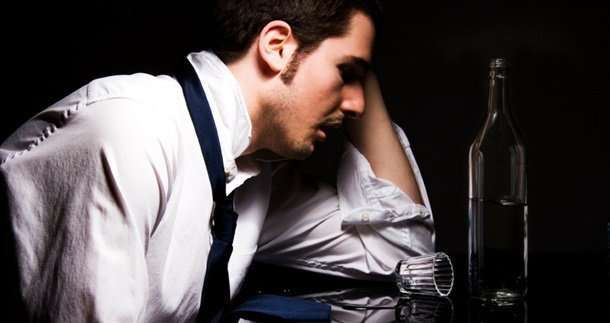It is a typical day in A&E at Kings College Hospital, London.
A recent admission, 32-year-old Joe, has just been offered an in-house detox for his acute alcohol poisoning but has decided instead to go and buy a bottle of vodka. The overworked but kind and caring staff follow him onto the street in their efforts to dissuade him.
This is just the first sequence in a rather depressing but very true to life documentary, the content of which will be horribly familiar to anyone who has been in any way involved with alcoholism.
We meet in A&E a number of seriously ill alcoholics each of whom is powerless over their addiction although they are clearly not enjoying its consequences; they display great insight into their behaviour but in the main do not have much hope of beating the problem nor indeed many ideas of how this might be achieved. They seem unwilling and afraid to make the changes that are needed, abstinence, honesty, positivity and the like – it is perhaps easier for them to stay in the familiar role of victim.
This is a situation that confronts anyone trying to help an alcoholic, be they loved ones, healthcare workers or work colleagues and for many, it seems insoluble. It seemed to be that way too for presenter Louis Theroux who at one stage is heard to muse on ‘the impotence I felt trying to help him’.
The Reality of Alcoholism – AA or A&E!
Several times I wanted to shout at them all ‘what about AA, at least suggest it or give it a try’. In fact AA was only mentioned once that I heard when Stuart, an alcoholic presenting with late stage cirrhosis of the liver is heard to say with apparent pride ‘I didn’t need AA, I went to A&E’; he seemed unaware that all A&E could do was relieve some symptoms such as his grossly distended stomach, whereas what he really needed was help to change in a much more fundamental manner.
All those alcoholics featured in the documentary were perhaps too ill to give anything but a best attempt at an honest answer to Theroux’s questions and this is what I found particularly moving. Unfortunately the programme did not seem concerned with looking for solutions but merely confined itself with showing the severity of the problem.
This was a documentary that in essence and message could have been made in the 1930’s before Bill W ever met Dr Bob. It may not be a requirement of documentaries to offer solutions to the problems that they highlight but for me it was a pity that AA which has helped so many people similar to those portrayed, was not given proper consideration.

